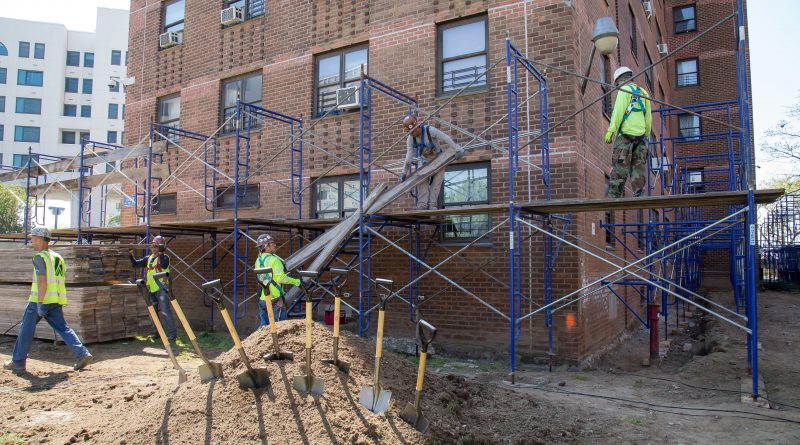Digging in at Coney Island
In May, NYCHA broke ground on a $90 million design and construction project to fully restore and strengthen the development. This involves roof replacements, installation of standby generators for backup power, new electrical systems and flood-protected boilers, flood-prevention measures, new lobbies, upgraded playgrounds and recreational areas, a new multi-purpose room for residents, and new lighting, security cameras, and state-of-the-art security entrance doors.
Stronger after Sandy at Coney Island Houses
NYCHA Breaks Ground on $90 Million Recovery and Resiliency Project
Hurricane Sandy inflicted incredible damage across New York City, including at Coney Island Houses, where it flooded the basement, knocked out power and heat, and filled underground pipes with sand. In May, NYCHA broke ground on a $90 million design and construction project to fully restore and strengthen the development. This involves roof replacements, installation of standby generators for backup power, new electrical systems and flood-protected boilers, flood-prevention measures, new lobbies, upgraded playgrounds and recreational areas, a new multi-purpose room for residents, and new lighting, security cameras, and state-of-the-art security entrance doors.
“I have been working closely and diligently with the NYCHA Recovery to Resiliency team to get the work started as quickly and safely as possible,” said Lauretta Brumfield, the resident association president of Coney Island Houses. “As a resident leader, I expect to have Coney Island Houses revived, to see people smiling, children laughing, playing, and to see residents working to rebuild their homes.”
With the largest grant ever awarded by the Federal Emergency Management Agency— $3 billion—NYCHA is repairing and strengthening its 33 developments that were damaged significantly by Hurricane Sandy, benefitting 60,000 residents. The construction at Coney Island Houses is the ninth major recovery and resiliency project to begin and the third in the Coney Island neighborhood. More than 170 NYCHA residents have been hired for this work so far.

